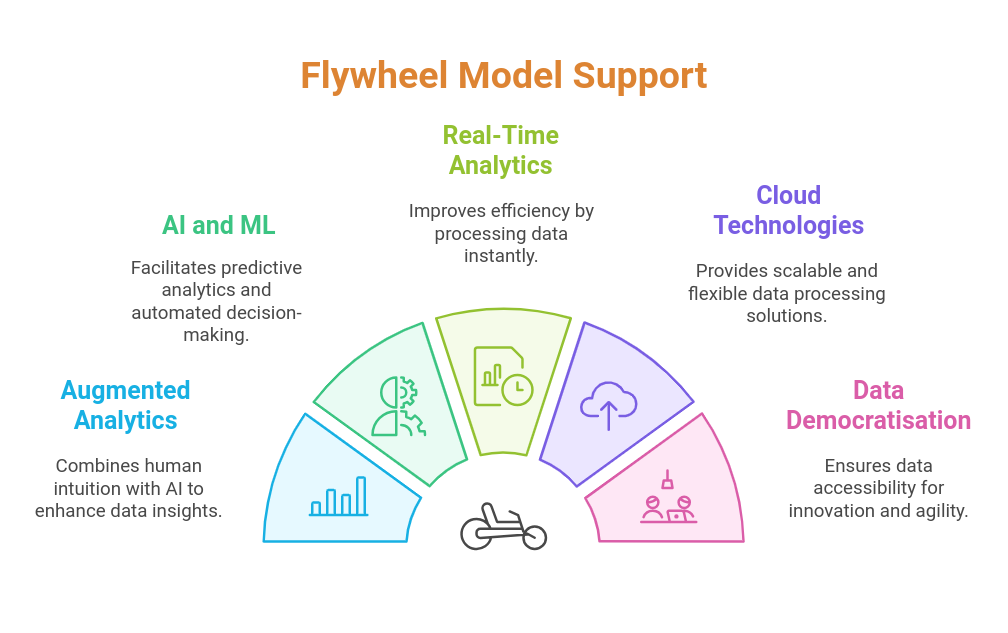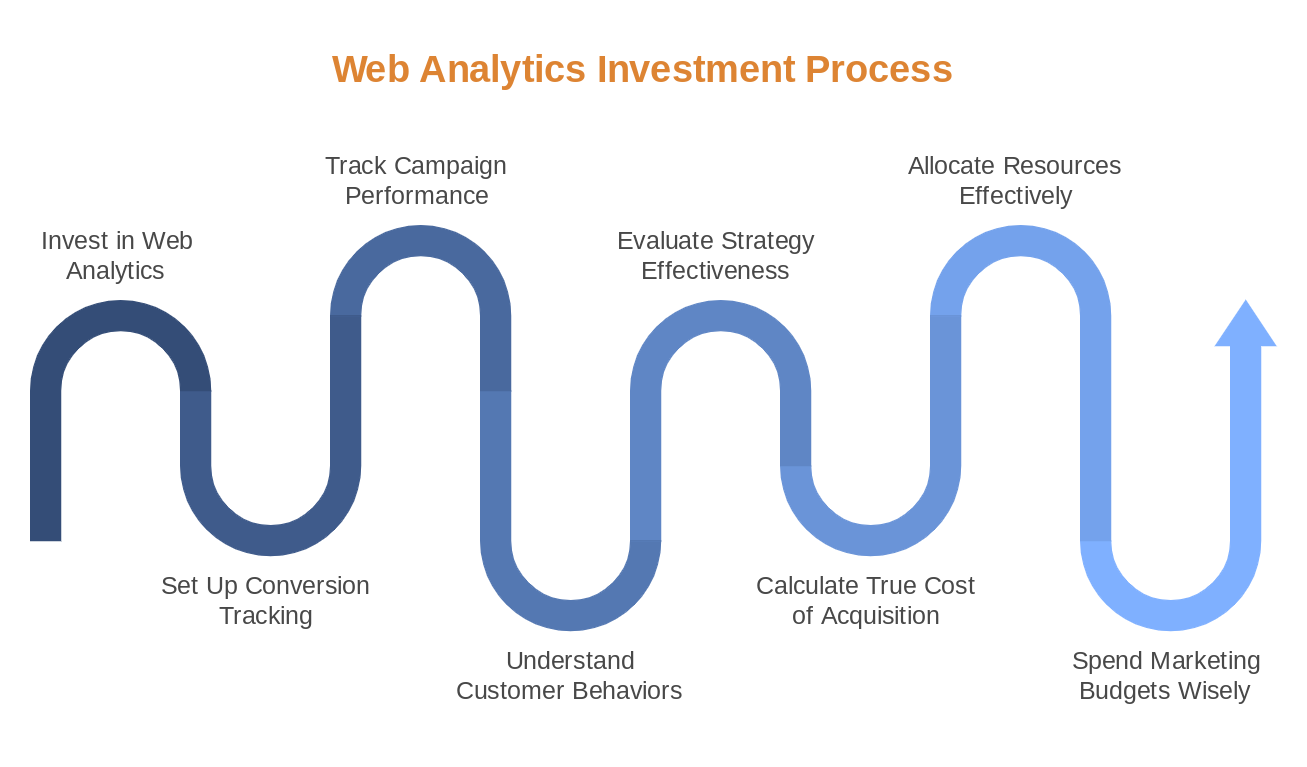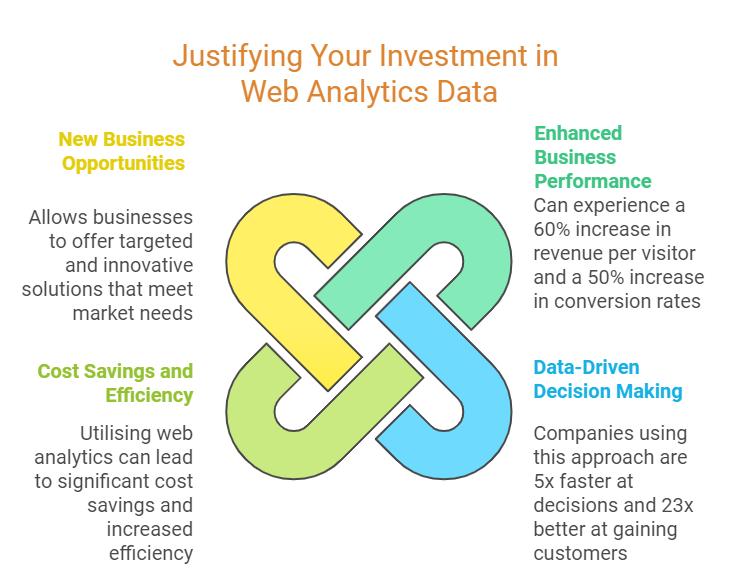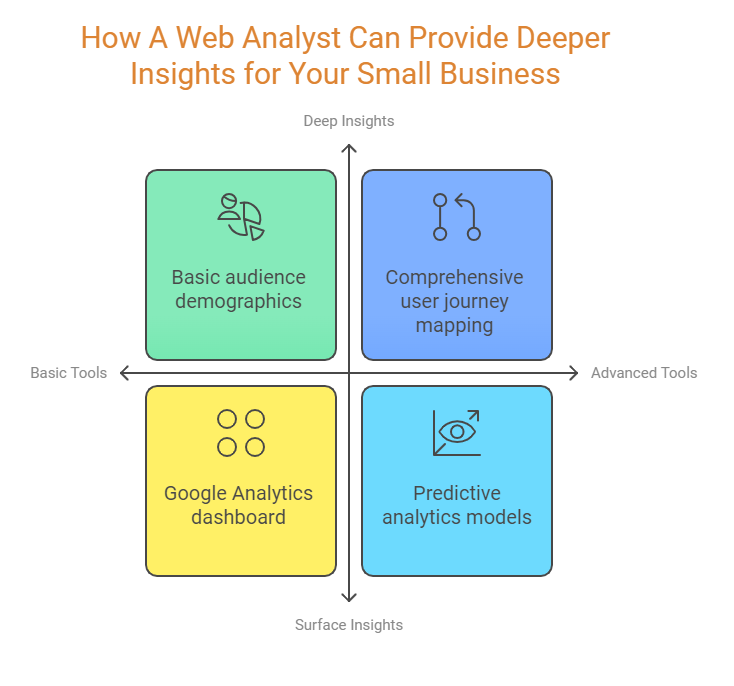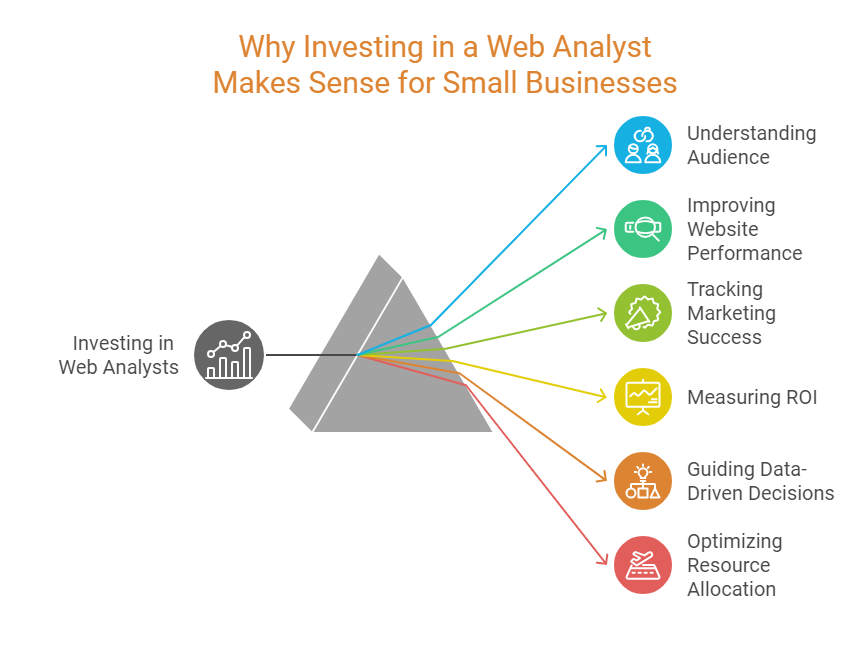In today’s digital landscape, understanding your website’s performance is paramount for small business success. A web analyst plays a pivotal role in deciphering vast amounts of data to optimize user experience, enhance website functionality, and inform strategic business decisions. This guide delves deep into the responsibilities, skills, and value that a web analyst brings to your business.
Key Responsibilities of a Web Analyst
Data Collection and Analysis
A web analyst is responsible for collecting, analyzing, and interpreting data from various user interactions on your website. Utilizing tools like Google Analytics, they track user behavior, identify trends, and detect anomalies to provide actionable insights. For instance, they might analyze which landing pages have the highest bounce rates and recommend improvements.
Reporting and Communication
Translating complex data into clear, understandable reports is a core function. Web analysts create presentations and dashboards to communicate findings to different departments, such as marketing, sales, and IT. Their ability to convey technical insights to non-technical stakeholders ensures that data-driven decisions are effectively implemented.
Website Optimization
Using data analytics, web analysts troubleshoot design issues, enhance user interfaces, and improve overall site performance. This might involve A/B testing different page layouts, optimizing load times, or refining navigation paths to increase user engagement and conversion rates.
Metrics Monitoring
They continuously track key performance indicators (KPIs) like website views, traffic sources, bounce rates, and conversion rates. Monitoring these metrics helps in adjusting marketing strategies and enhancing user engagement. For example, a sudden drop in traffic from a specific channel can be swiftly addressed to regain lost momentum.
Essential Skills for Web Analysts
Technical Proficiency
Web analysts must be adept with tools such as Tableau, Power BI, and programming languages like SQL, Python, and R. This technical expertise enables them to manipulate and visualize data effectively, uncovering deeper insights that can drive business growth.
SEO and Marketing Acumen
Understanding SEO principles and marketing strategies is crucial. Web analysts evaluate and optimize marketing campaigns based on data insights, ensuring that campaigns are effective and aligned with business objectives. For example, they might analyze keyword performance to improve your website’s search engine rankings.
User Experience (UX) Insight
Knowledge of UX principles allows web analysts to assess how users interact with your website. By identifying pain points and areas for improvement, they make data-driven recommendations to enhance user satisfaction and engagement. This could involve optimizing mobile responsiveness or simplifying the checkout process.
Business Acumen
Aligning data analysis with business goals requires a strong understanding of your company’s objectives and key performance indicators (KPIs). Web analysts ensure that their insights support overarching business strategies, contributing to informed decision-making and sustainable growth.
The Impact of Web Analysts on Small Businesses
Enhancing Website Performance
By continuously monitoring and optimizing website performance, web analysts ensure that your site runs smoothly and efficiently. This reduces downtime, improves load times, and creates a seamless experience for your visitors, ultimately leading to higher retention and conversion rates.
Driving Informed Business Decisions
Data-driven insights provided by web analysts empower small business owners to make informed decisions. Whether it’s adjusting marketing strategies, refining product offerings, or enhancing customer service, having accurate data at your fingertips is invaluable.
Case Study: Small Retail Business Transformation
Consider a small retail business that struggled with high bounce rates and low conversion rates. After hiring a web analyst, they implemented data-driven changes such as optimizing their product pages, improving mobile responsiveness, and personalizing marketing campaigns. As a result, their bounce rate decreased by 25%, and conversions increased by 40% within six months.
“Data is the new oil. It’s valuable, but if unrefined it cannot really be used.” – Clive Humby, Data Science Pioneer
Practical Applications and Tools
Utilizing Analytics Tools
Web analysts leverage various analytics tools to gather and interpret data. Google Analytics is widely used for tracking website metrics, while tools like Google Tag Manager streamline the management of website tags. Data visualization tools such as Tableau and Power BI help in creating intuitive dashboards that highlight key insights.
Implementing SEO Strategies
Integrating SEO best practices into your website strategy is another area where web analysts excel. By analyzing keyword performance, backlink profiles, and competitor strategies, they help improve your website’s visibility on search engines, driving more organic traffic to your site.
Optimizing Marketing Campaigns
Web analysts assess the effectiveness of marketing campaigns by tracking metrics such as click-through rates, conversion rates, and return on investment (ROI). This analysis allows for the optimization of marketing spend, ensuring that resources are allocated to the most effective channels.
Questions for Small Business Owners
- How effectively are you currently utilizing data to inform your business decisions?
- Are you leveraging the right tools to monitor and optimize your website’s performance?
- What specific business goals could be advanced through enhanced data analysis?
If you found this guide insightful, you might also be interested in our benefits of SEO for small businesses and choosing the right analytics tool.
Conclusion
Hiring a web analyst can be a game-changer for your small business, providing the expertise needed to navigate the complexities of web data and transform it into actionable strategies. From enhancing website performance to driving informed business decisions, the role of a web analyst is integral to sustaining and growing your online presence.
Ready to take your website to the next level? Contact us today to learn how our web analysts can help your business thrive in the digital age.


